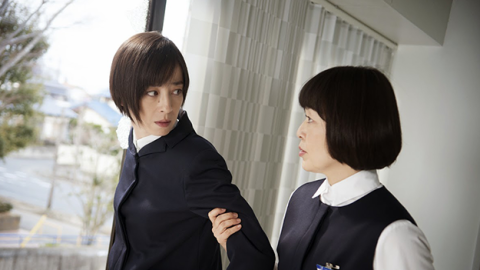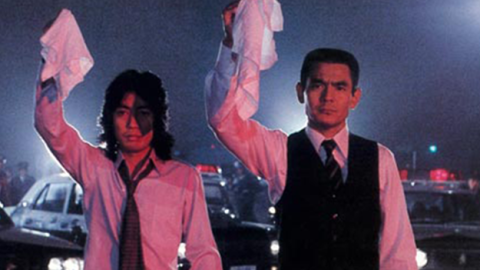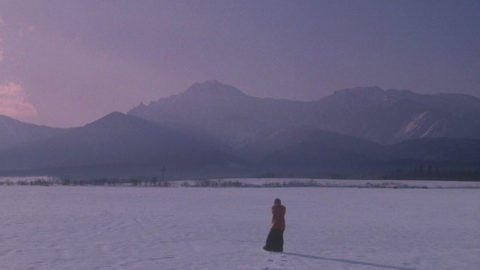NYAFF: Hong Kong’s Eric Tsang
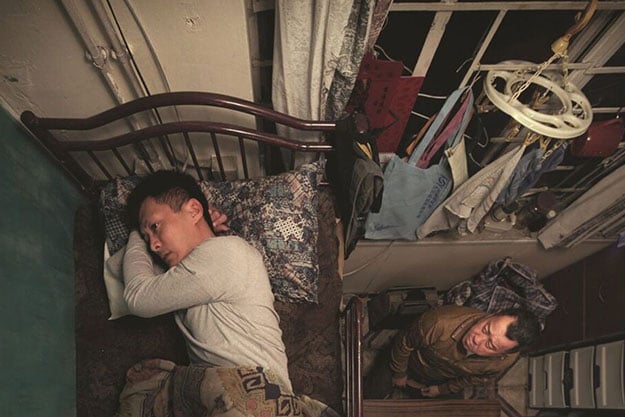
Mad World
He is a short, roly-poly, balding guy who can run the gamut from jovial buffoon to icy killer. He’s played a ruthless but cultured triad leader in the Infernal Affairs trilogy (2002-03), a mob boss who offers Maggie Cheung’s character a lifeline when she’s about to be deported in Comrades, Almost a Love Story (1996), an unhappy husband trying to arrange a hotel tryst in the surprisingly sophisticated slamming-doors farce Men Suddenly in Black (2003); and a blue-collar truck driver suddenly faced with caring for his long-estranged, bipolar son in Mad World (2016).
Eric Tsang won Best Supporting Actor at the Hong Kong Film Awards for Mad World, and the New York Asian Film Festival presented him with its Lifetime Achievement Award at a special celebration on July 13. Over a career that includes some 200 movie credits, he’s worked with Jackie Chan, Jet Li, Donnie Yen, and other heavyweights, often delivering the standout performances of their films. In the 1980s he was a fixture in comedies about gamblers and cuckolded husbands, and built a reputation as a fearless emcee at awards shows and benefits. And in hosting the variety show Super Trio for 18 years, he has gained a loyal following. Irreverent, direct, opinionated, and trustworthy, he seems incapable of delivering a false performance.
Born in 1953, Tsang was pursuing a soccer career when he broke into movies as a stuntman in the late 1970s. He made his mark by directing the first two Aces Go Places (aka Mad Mission), a breakthrough action-comedy series of six films released through Cinema Cities.
That studio helped revolutionize Hong Kong’s movie industry, and Tsang was deeply involved in its most successful titles. He sought out young filmmakers, making the studio a springboard for artists like John Woo, Tsui Hark, Ringo Lam who helped popularize the “heroic bloodshed” genre that dominated the late 1980s before its influence seeped into Hollywood product.
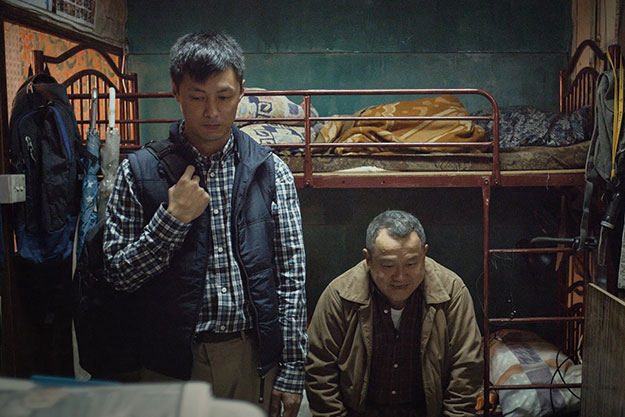
Mad World
“Cinema Cities I felt changed Hong Kong cinema because we combined old and new ways of filmmaking,” Tsang said in an interview before the New York premiere of Mad World at the NYAFF on July 12. “Some of the people who worked there had never been to film school. We emphasized things like art direction, cinematography—the technical side of filmmaking—because Hong Kong films used to be crappy. We also tried never to repeat a story or theme, to always put out new material. We didn’t want our films to become sequels. People in Hong Kong started making the same thing over and over, but we went after new stories—to me that’s the main reason for the success of Cinema Cities.”
In 1990, Tsang changed direction again, helping found UFO (United Filmmakers Organization) with director Peter Chan Ho-sun and others. They positioned their releases as alternatives to mainstream HK movies. It was a fresh start for Tsang as an actor as well. Worried about being typecast as a comic sidekick, he wanted to move into dramatic roles. In Peter Chan’s Comrades, Almost a Love Story, he played his first gangster.
“When I was offered the role of Pao, I deliberated for three days. I asked myself, can I do it, can I be believable as a bad guy? And then I remembered this big-brother figure that was sort of like me when I was a kid. He wasn’t my actual big brother, but he was like me physically: short, not too handsome. He had a great sense of humor. You would always see him laughing. And he was always surrounded by women. He was very charming, more than that, considerate. He was considerate to women. That’s how he won their hearts. Money meant nothing to him.”
Pao works hard to earn the trust of Maggie Cheung’s character. She in turn learns to care for him, if not to fall in love.
The role Tsang plays in the Infernal Affairs films—the simultaneously affable and vicious triad chief Hon Sam—is a key one.
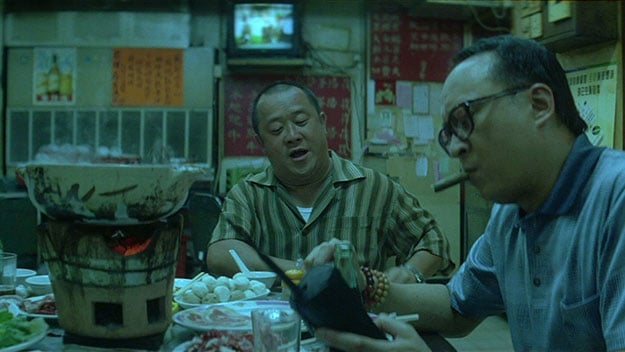
Infernal Affairs II
“I’ve done many gangster films,” he said. “Whenever I accept a role, I say to myself, no one would brag, ‘I’m a bad guy.’ There has to be a reason for what I do or what I say. Say someone’s in jail, and I kill him. Why? Because I feel he doesn’t deserve to be in jail. He deserves to be killed, not safe in prison. Even though I do this hideous act, I feel like I was doing the right thing.”
Tsang underplays most of his scenes in Infernal Affairs, speaking softly, letting others carry out his orders. But in one scene he suddenly doubts the loyalty of the character played by Tony Leung Chiu-wai, doubts that he actually broke his arm committing a crime. Tsang grabs Leung’s cast and crushes it, an outrageous act of cruelty.
“I started out as a director, so with a gangster film like Infernal Affairs, with its violence, I want to surprise viewers,” he said. “There’s a scene in the police station where I suddenly swipe a rice plate off a desk. I actually bought that lunch box myself, it wasn’t in the script. I just felt by doing that, it showed the fearlessness of my character, his viciousness, how he’s not afraid of the law. Same with Leung’s cast. I was trying to shock the audience, using elements from the scene. Breaking that cast was the last thing viewers expected.”
Bootlegging, piracy, and the 1997 handover [when Great Britain released claims on Hong Kong as a colony] all had a catastrophic impact on the Hong Kong movie industry. Feature production dropped from hundreds of titles a year to 40 in 2003. Tsang responded by backing new directors on independent projects like When Beckham Met Owen (2004) and High Noon (2008). He also took roles in mainstream projects like the Jackie Chan vehicle Skiptrace (2016) and the Chinese special-effects blockbuster Monster Hunt (2015).
Mad World is the debut feature of director Wong Chun and screenwriter Florence Chan, and part of its modest $250,000 budget came from the Hong Kong Film Development Council’s First Feature Film Initiative. Tsang had worked with Chun on a short film, and years earlier had hired co-producer Heiward Mak as a screenwriter Men Suddenly in Black 2. Still, he was reluctant to take the role of a troubled father in Mad World.
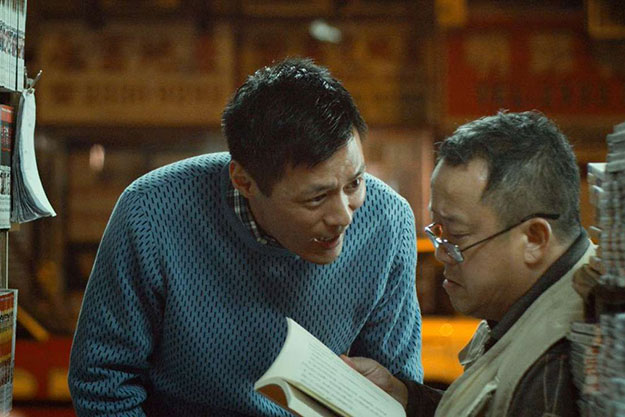
Mad World
“When I found out Chun was going to make his first feature film, I said I’ll come on board,” Tsang recalled. “But I didn’t expect such a heavy subject matter. After I read the script I realized how meaningful this film was, and I threw my support wholeheartedly into the film.”
“First he planned to refuse the project,” Mak said. “But he was touched by the subject, and he gave us a lot of support. He is an all-around player—comedy, serious drama, he knows kung fu, and action—and as a producer he has a macro vision, he can visualize the entire project.”
Chun wrote in an e-mail: “Besides giving a brilliant performance in the film, Tsang offered a strong endorsement in the pre-production stage, which made it a lot easier for me as a new director to get Shawn Yue and Elaine Jin to star in the film.”
As Chan put it, “It’s a huge sacrifice for an actor. Not only are they underpaid, they have to give their time, also they have to give their own emotions to you for the performance. Eric gives his real self in that performance. It’s really hard. An actor can just act and never give real emotions. But Eric brings something into the film, his life, his personal experiences, and I really appreciate that.”
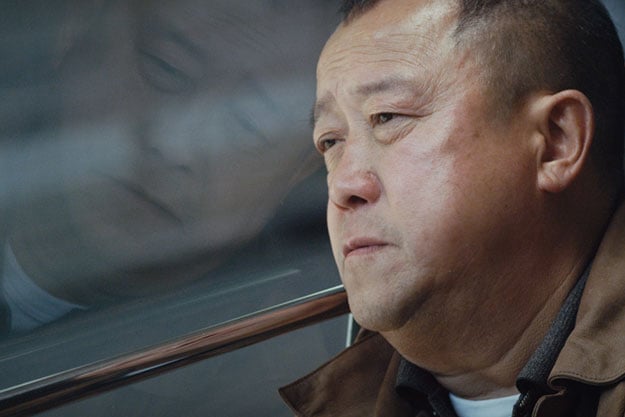
Mad World
“I did put a lot of my real life into the character,” Tsang agreed. “Wong has a wife and kid, I have a wife and kid. Wong in the movie is always away, and as an actor and producer in real life, I often think I’m always making movies and ignoring my family. So in the scene with the therapy group, when I say I want to spend more time with my son, it’s almost like a reflection of my own wish to spend more time with my family. And on the hospital rooftop, where I’m explaining myself to my son, it’s almost like an exact reflection of my career. The similarities between the father’s experiences and my own life were so real that it wasn’t actually too challenging to play out those moments.”
Tsang consistently downplays his skill in demanding scenes like these. At one point in Mad World he’s seen in close-up on a bus, staring out a window and contemplating terrible news about his son. In one take, surrounded by the chatter of extras, he slowly breaks down, holding back tears.
“In that kind of environment, you basically have to forget everything that’s around you,” he explained. “Even though you have cast, crew, extras, in the moment you have to think about the similarity with the characters in your life. That allows me to immerse myself in the character.”
Tsang the actor has been a constant in movies for some 40 years. But few realize his impact on the industry as a whole. Directing, producing, writing, mentoring talent, he has helped sculpt an identity for Hong Kong cinema.
Thanks to Frank Djeng for his translation assistance.
Daniel Eagan is a critic and film historian living in New York City. He is currently working on the third volume of America’s Film Legacy, a survey of the National Film Registry.



